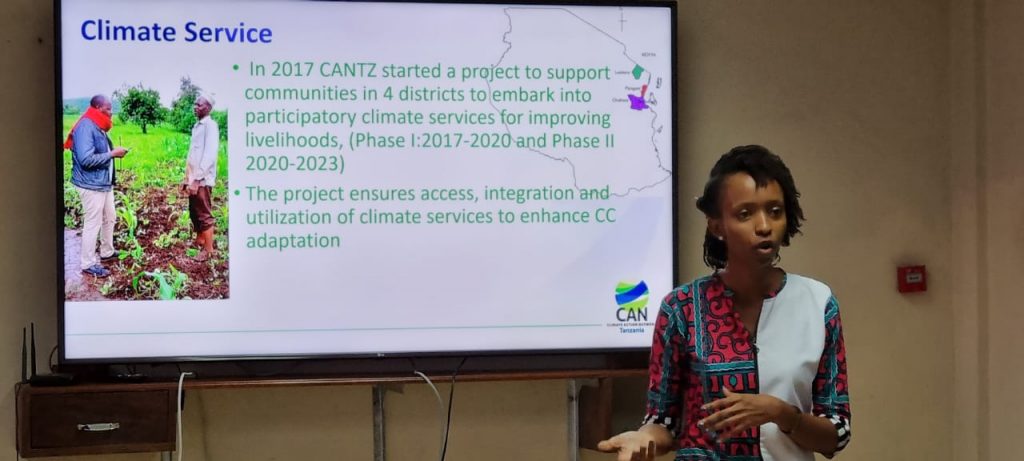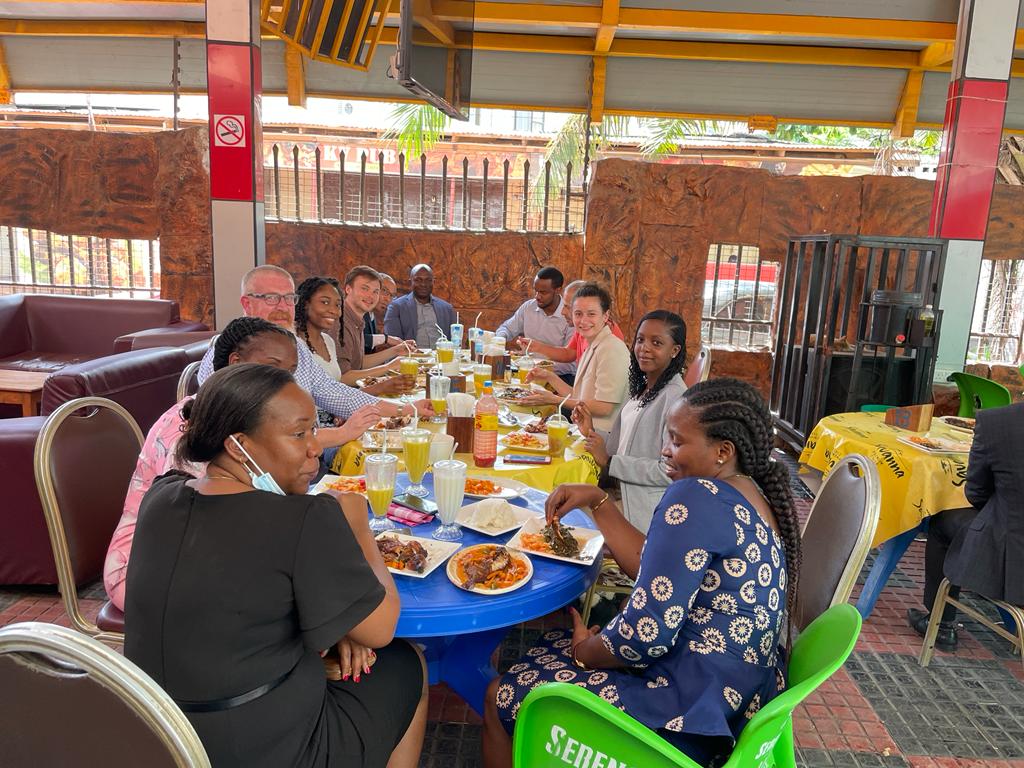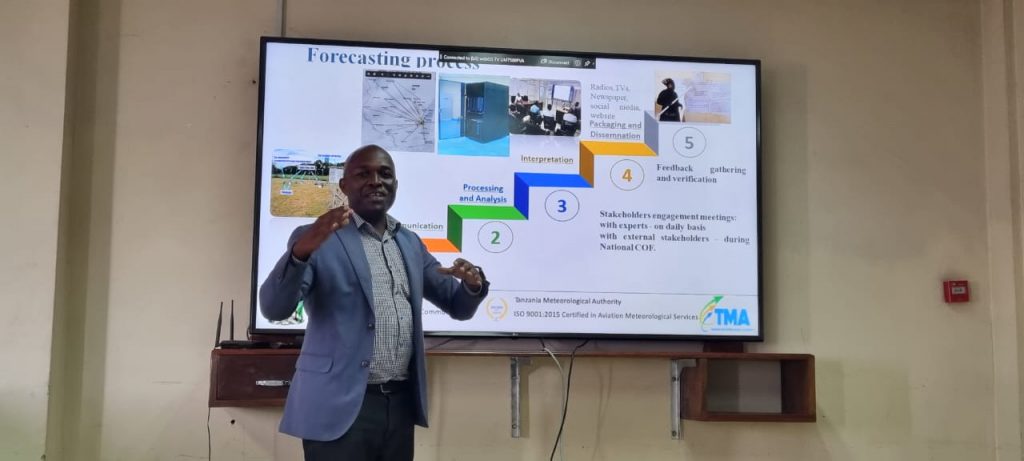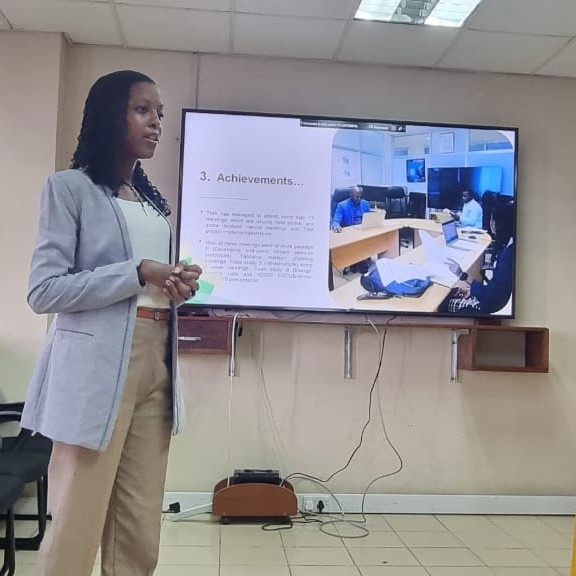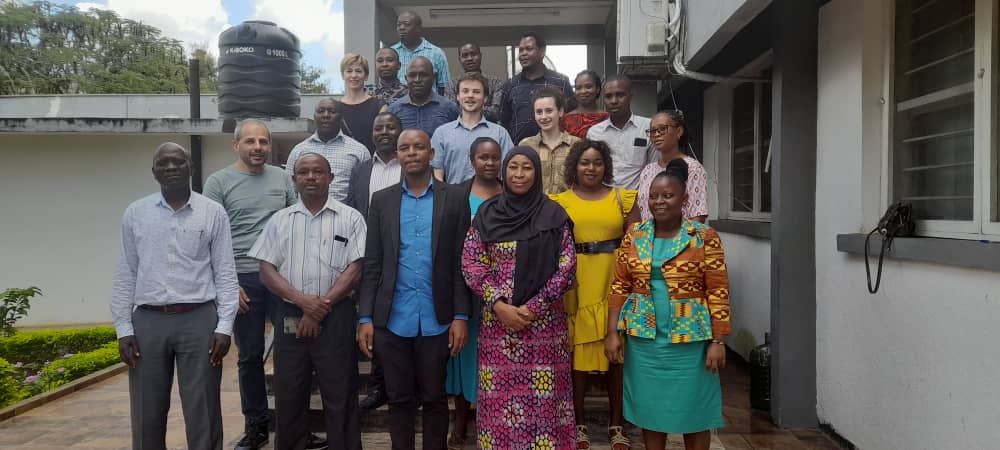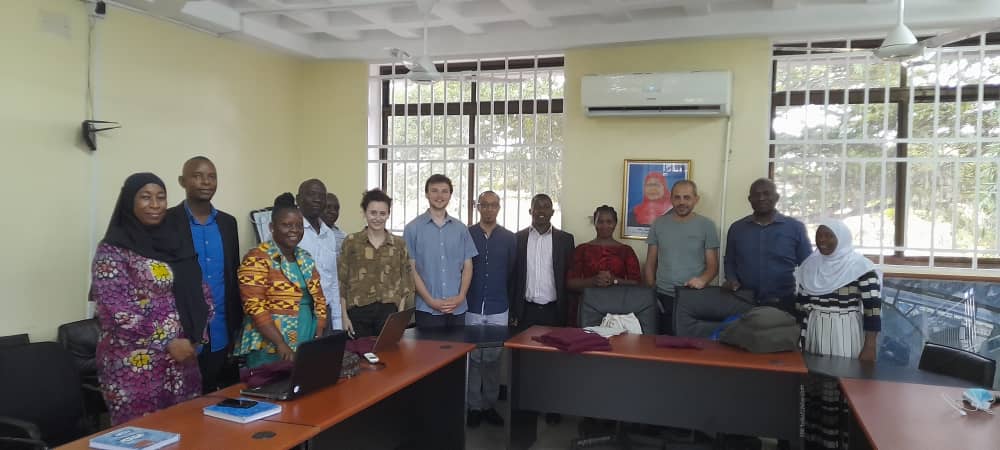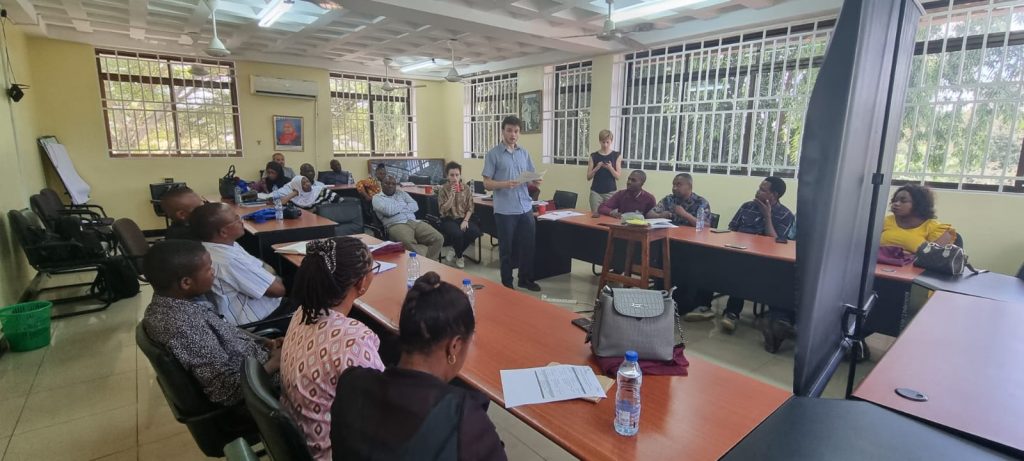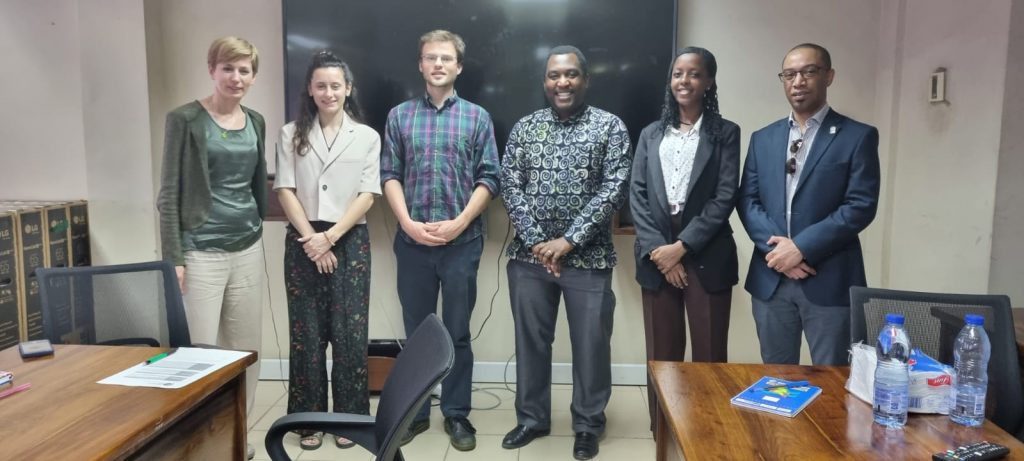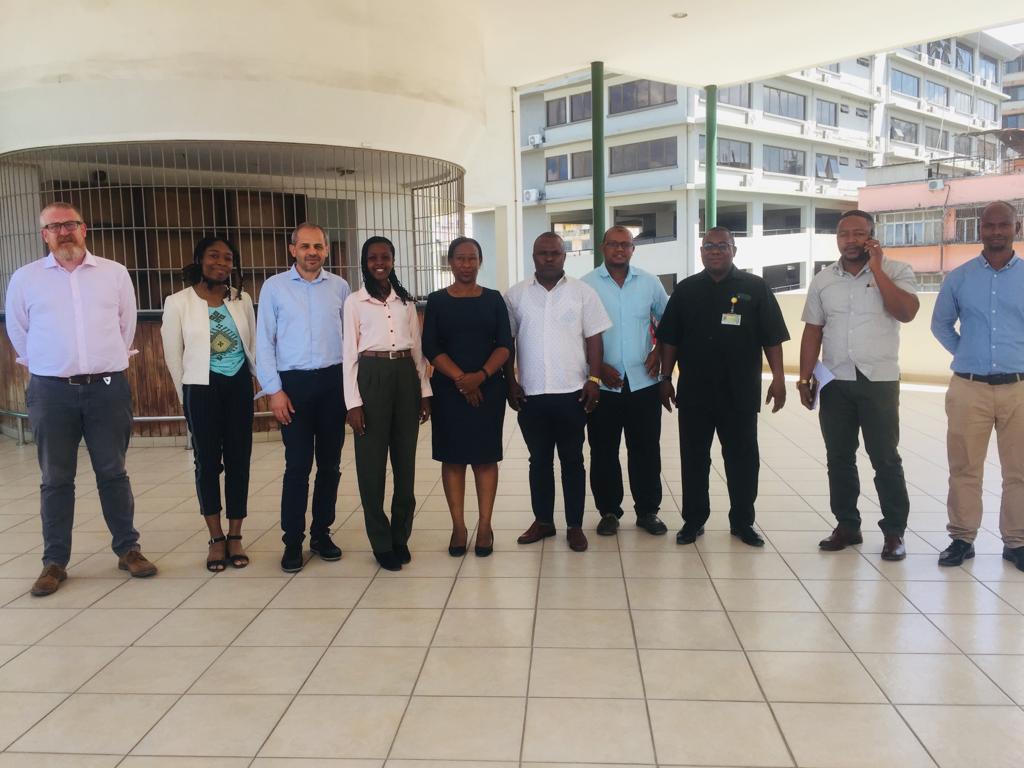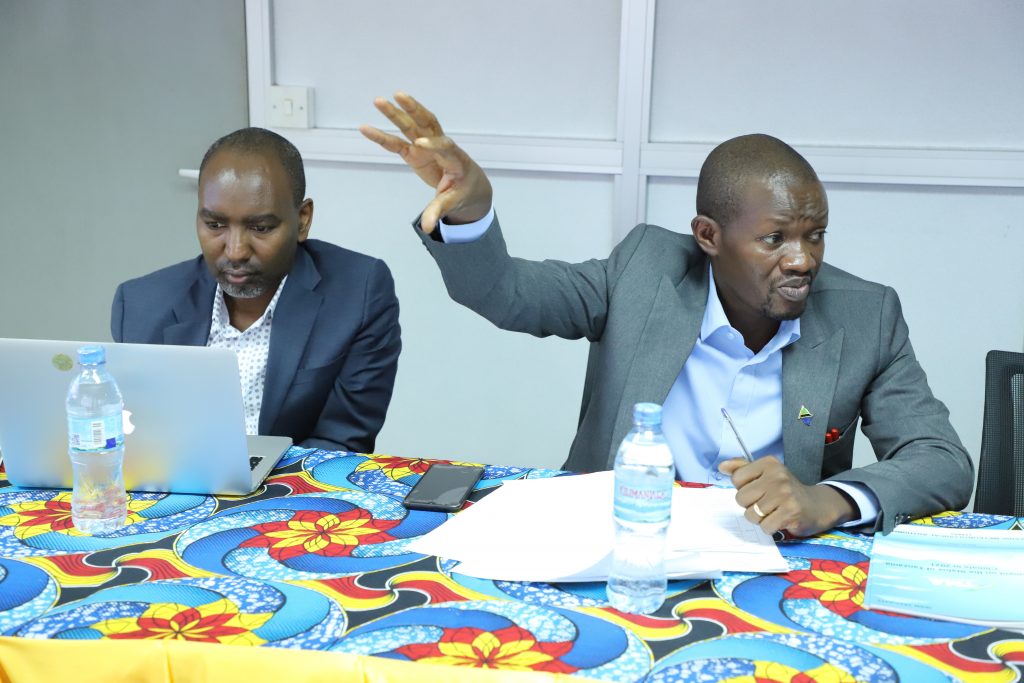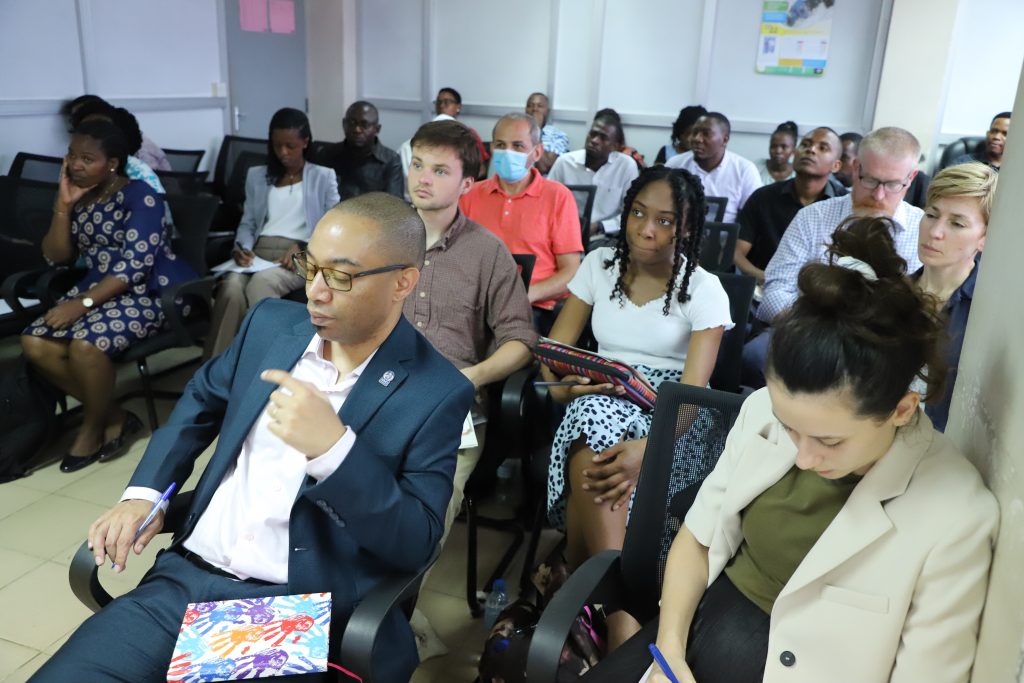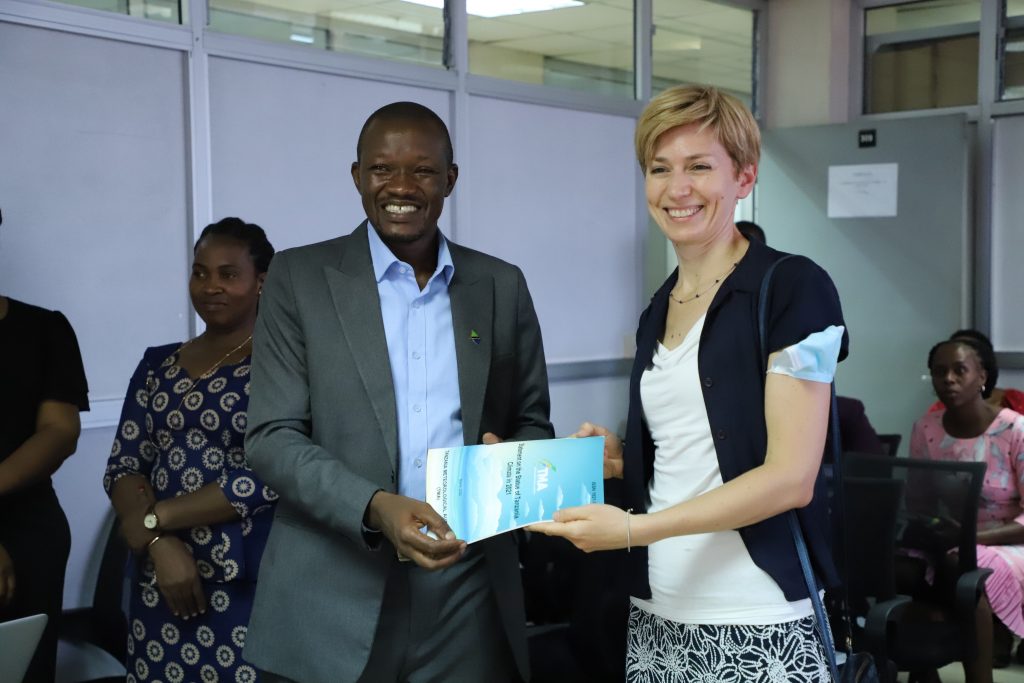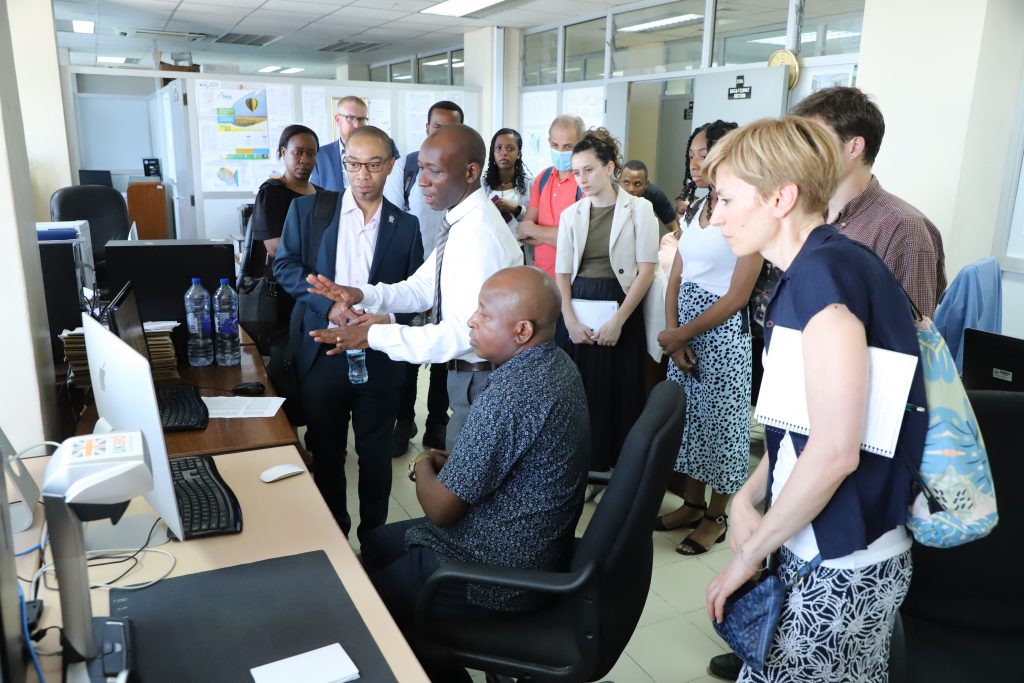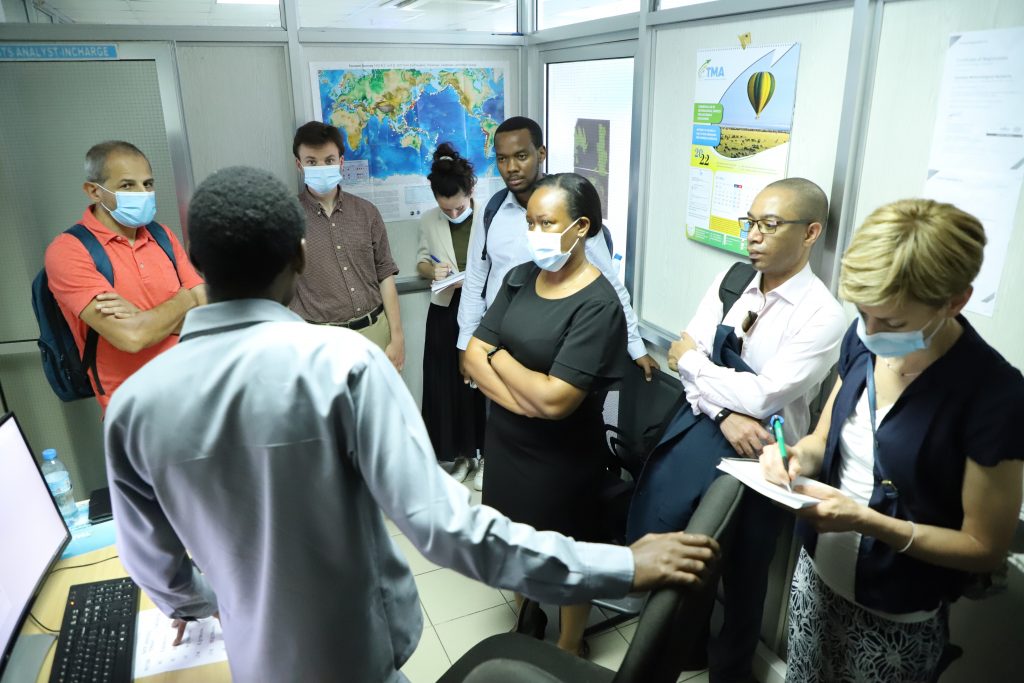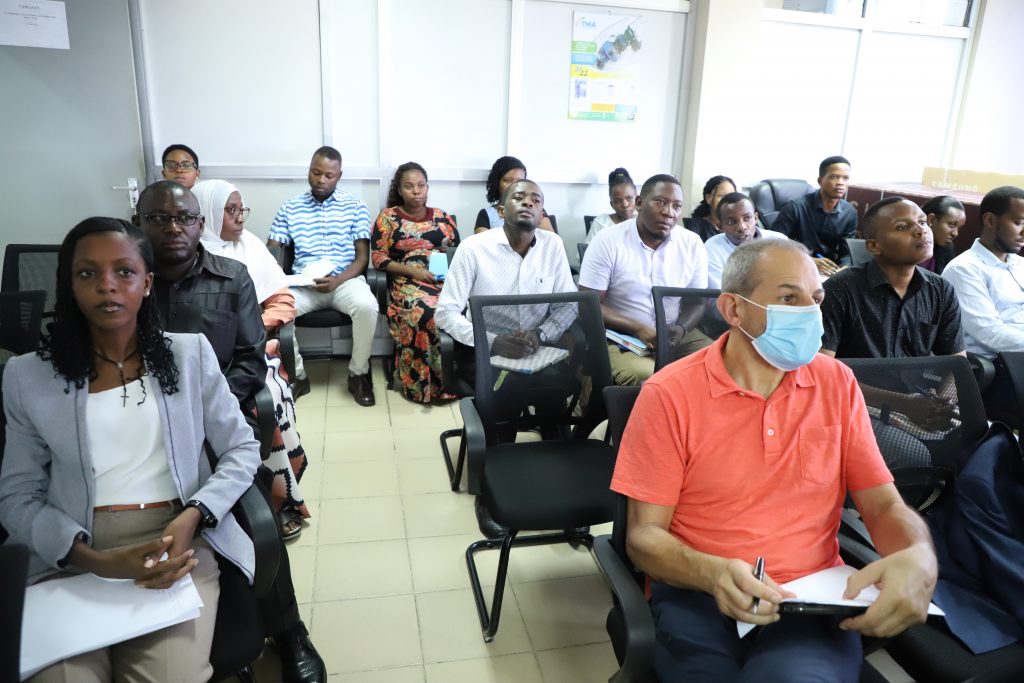To foster the contribution and involvement of local stakeholders such as farmers in the project, the FOCUS-Africa team is organizing missions to the different countries where the project has case studies.
After Mozambique and Mauritius, the team has now travelled to Tanzania with the objective to better understand local stakeholders’ climate services usage, needs and challenges and ensure their input into the codesign of the tailored climate services in the case studies there. FOCUS-Africa’s case studies in Tanzania focus on the following sectors: agriculture and food security (case study 4), infrastructure (case study 5) and energy (case study 6).
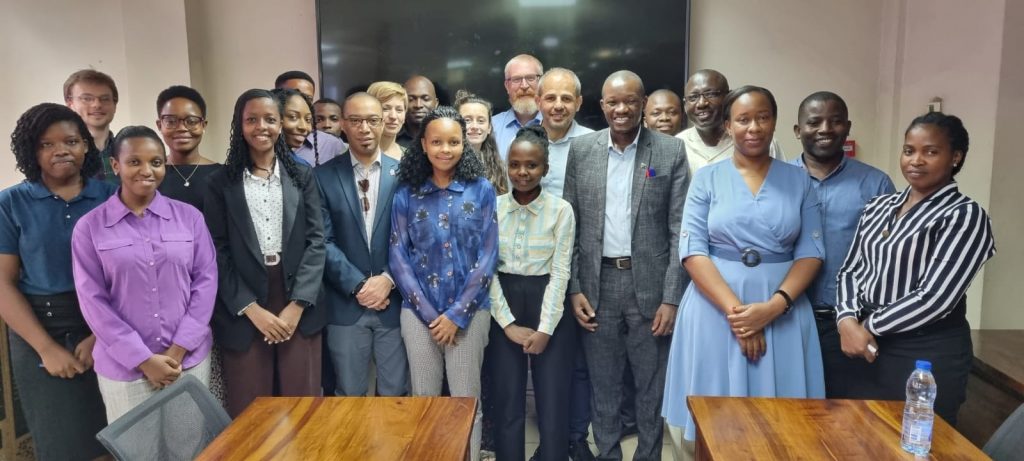
The first part of the mission allowed the team to better understand the work carried out by Tanzania Meteorological Authority, the main climate service provider in the country. Presentations describing the currently existing types of weather forecasts for agricultural activities, energy and infrastructure but also the remaining challenges allowed for a better understanding of the situation by the team.
Then, members of Climate Action Network Tanzania (CANTz) joined to introduce CANTz’ climate services interventions, which include capacity enhancement of Climate Services agents in order to facilitate the interpretation of forecasts; Interpretation of indigenous knowledge (IK); and dissemination of climate services through local radio and SMS exchanges with end-users. The latest triggered our team’s attention as an easy and efficient way to get feedback and engage with end-users.
The second day was dedicated to focus group discussion. The food security and agriculture team met with TARI, extension officers, DAICO and RAA in Kibaha district, while the energy and infrastructure teams went to the University of Dar es Salaam to meet with professor Pius Yanda from the Institute of Resource Assessment. Both focus group discussions turned out to be highly beneficial to the project. The food security and agriculture team got to grasp better the local context specificity and could learn from existing local knowledge relying on indigenous climate forecasting indicators. Meanwhile, the energy and infrastructure teams were advised to engage more directly with stakeholders involved in infrastructure planning and development, such as NEMC who are responsible for issuing Environmental Impact Assessments, the Minister of Infrastructure, COWI, and city authorities. Indeed, feedback suggested that climate change’s impact on infrastructure was not yet considered seriously enough in planning and construction. As a matter of example, Professor Pius Yanda mentioned the recurrent flooding of the Jangwani Bridge, leading to transport and communication issues during rainy periods.
On the third day, we met with the Tanzania Electric Supply Company (TANESCO), which mission includes electricity generation, transmission, distribution and sale. The team at TANESCO explained their main challenges and after thorough discussions to understand the issues’ complexity, our team felt that FOCUS-Africa’s models for climate projection could be applied to help the sustainability of power production in the country. To this end, TANESCO agreed to provide inflow data from the six locations where they have set their Hydropower plants. The data provided will help determine the most suitable model for TANESCO to use. But already, a statistical model was brought forward as a preferred option for its ease of use.
On the fourth day, our team could exchange with TotalEnergies who plays an active role in the public debate. Indeed, as a major multi-energies player on the international scene, the corporation present in over one hundred and thirty countries is a player that has to interact not only with the various representatives of the economic world but also with the local populations in the areas in which it is established as well as with the public authorities. TotalEnergies expressed the willingness to develop larger wind and solar energy power projects in the country but explained that the development of renewable energy is still under discussion by the government.
Finally, the mission ended with a meeting with the Food and Agriculture Organization (FAO) whose main objective is to build resilience for food security, by improving communication and increasing support in the interpretation of Agrometeologiocal information. The expert expressed the need to have more localized climate information, including more precise data on the onset and cessation of the rainy season so that farmers can decide what to grow but also when to do the weeding or apply fertilizers. Lastly, he explained the necessity to have access to the forecast earlier, namely around two weeks in advance, so that farmers can prepare.
The mission was a success in many ways and for all parties. FOCUS’-Africa’s case study teams, namely the agriculture and food security team (case study 4), the infrastructure team (case study 5) and the energy team (case study 6) did benefit from in-person engagement with the local end-users by collecting a lot of concrete information on the usage, challenges, and needs related to climate services. Also, as the end-users got the chance to get insights into the objectives of the project, their understanding of the project’s advantages increased which will allow for a closer relationship thus facilitating the co-development of climate services for the case studies. Finally, it was also beneficial to foster TMA and the project team‘s mutual understanding regarding many aspects of the project’s implementation.

